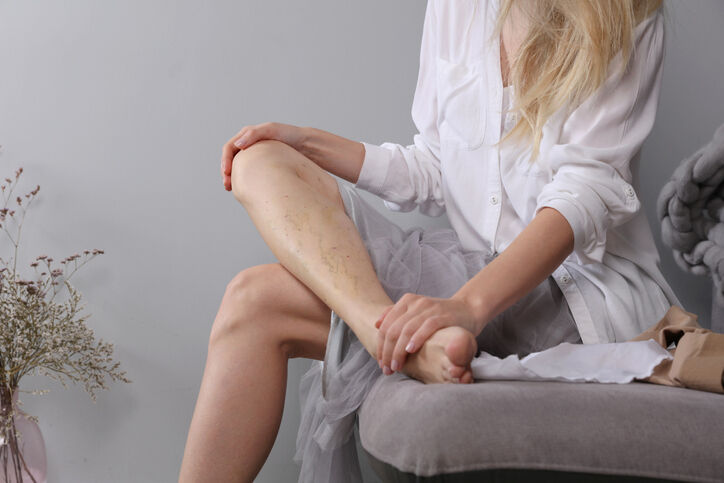
Are You at Risk for Spider Veins?
Spider veins are a common issue for women and even some men. The visible networks of vessels, also known as telangiectasia, get their name from their resemblance to a spider’s web.

Are you looking to strengthen your veins? Vitamin C won’t cure everything, but it can help your veins in small ways.
“Take your vitamins!” “You’ve probably heard this advice multiple times since childhood. You already know a balanced diet full of vitamins and minerals is essential for your overall health. But did you know that vitamins also play a vital role in vein health?
Vitamin C, in particular, has a significant effect on our veins. Healthy veins put you at a lower risk of developing vein problems such as spider veins. Maintaining an ideal weight and regular exercise is crucial to good vein health. However, if you’re looking for another way to keep spider veins at bay, you can try to increase your vitamin C intake.
Vitamin C has long been touted as an immune-system booster. In addition to helping ward off viruses that cause the common cold, vitamin C can also strengthen your veins by helping your body produce collagen and your veins (and skin) stay strong and flexible.
Sturdy, elastic veins support good circulation. So what happens when you don’t have enough vitamin C in your diet? Vein valves lose their strength and have difficulty pumping blood back to the heart. As blood pools in the vein, a visible spider vein forms. Although commonly considered a cosmetic issue, spider veins nevertheless indicate poor circulation.
But vitamin C also has healing properties that may reduce inflammation in the veins. One study found that patients with inflammatory diseases could strengthen their veins with vitamin C.
It’s easy to get the vitamin C you need for healthy veins. Colorful fruits and vegetables such as oranges, tomatoes, broccoli, chili peppers, peppers, lemons, strawberries, kale, and kiwis are all excellent natural sources of vitamin C. To maximize vitamin C intake from these products, eat them raw or lightly cooked.
You can also take a vitamin C supplement (ascorbic acid). Available in tablet, capsule, or chewable forms, these supplements come in doses ranging from 25 to 1,000 milligrams. The National Institutes of Health recommends that adult men 19 years and older take 90 milligrams of vitamin C. Women of the same age should take 75 milligrams each day. Note: taking more than the recommended amount has not been shown to provide any additional benefit.
Caution: vitamin C may interfere with other medications you may be taking. Check with your doctor before you start taking any supplements. If your stomach is sensitive to ascorbic acid, you can try a “buffered” version to reduce heartburn.
Although vitamin C is beneficial to your vein and overall health, it is not a cure for spider veins. Preventing spider veins starts with lifestyle choices such as exercising and maintaining a healthy weight, while eliminating spider veins can only be accomplished via medical procedures such as sclerotherapy.
Center for Vein Restoration (CVR) has three offices in Atlanta, Georgia, led by three experienced vein specialists. Each doctor has helped hundreds of patients overcome the unsightly appearance and pain of varicose and spider veins. Contact their offices today for a consultation.
Louis Prevosti, MD, FACS, is board-certified in thoracic and cardiovascular surgery and is a diplomate of the American Board of Venous and Lymphatic Medicine (ABVLM).
James Fonger, MD, FRCS, is board-certified in general surgery and cardiovascular surgery.
Keith Moore, MD, is a board-certified general surgeon specializing in vein procedures.
Camp Creek Medical Center
3886 Princeton Lakes Way
Suite 140
Atlanta, GA 30331
Gwinnett Professional Center
601 Professional Drive
Suite 170
Lawrenceville, GA 30046
Northside Center Pointe
1100 Johnson Ferry Road NE
Suite 165
Atlanta, GA 30342